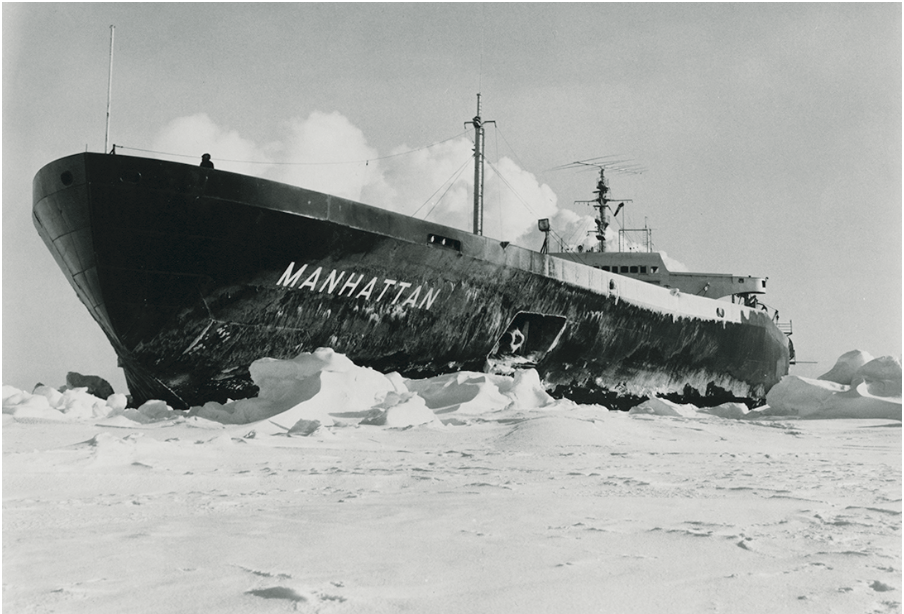In 1969, almost exactly 20 years before the Exxon Valdez oil spill, National Fisherman Special Correspondent John Frye filed a story on the S.S. Manhattan, a 1,005-foot tanker and icebreaker that was heading to Alaska from Philadelphia via the Northwest Passage to "plunge through Arctic ice to the rich new Alaskan oil fields," the first foray into what would become a $900 million pipeline project connecting Prudhoe Bay to Valdez. (That $900 million would be $6.3 billion today.)
The discovery of oil in Prudhoe Bay the year before had delivered the American oil industry to the precipice of a great challenge:
"Can it exploit those fields without irreparable damage to an environment, land and marine, that for all its remoteness from civilization is a vital part of the environment of a hemisphere?" the author asked.
Frye interviewed Dr. Max E. Britton, director of the Office of Naval Research's Arctic Program about the predictability of problems that might arise from handling oil in the Arctic, especially avoiding spills or containing and cleaning up after them.
"The answers," Britton replied, "are not available to this office and probably not elsewhere. For many months, the oil industry and many government agencies have been asking similar questions from every known expert or would-be expert and, in general, finding answers hard to come by. Everyone can speculate, of course, and much of this is being done. We can be sure many mistakes are going to be made and learning is going to be a painful process."
An Interior Department team was also studying the natural effects of opening up the passage.
"At the present time, no commercial fisheries exist in Alaska beyond Kotzebue Sound where a salmon fishery takes place each summer. There are, however, subsistence fisheries by the natives in northern Alaska," said H.E. Crowther, director of Commercial fisheries under the Interior Department. "If a tanker operation through the Northwest Passage should develop, the protection of these species from the effects of possible oil pollution through ship accidents or other causes is of concern to the Fish and Wildlife Service."
Regardless of the lack of known threats, federal agents were wary of the effects of spills.
"Oil spilled in large volume at the high temperature it comes from the well would certainly be expected to degrade sea ice and create a long-enduring mess," said Britton. "Spilled on permafrost of the land surface similar results could be expected as the ground has a very high ice content."








